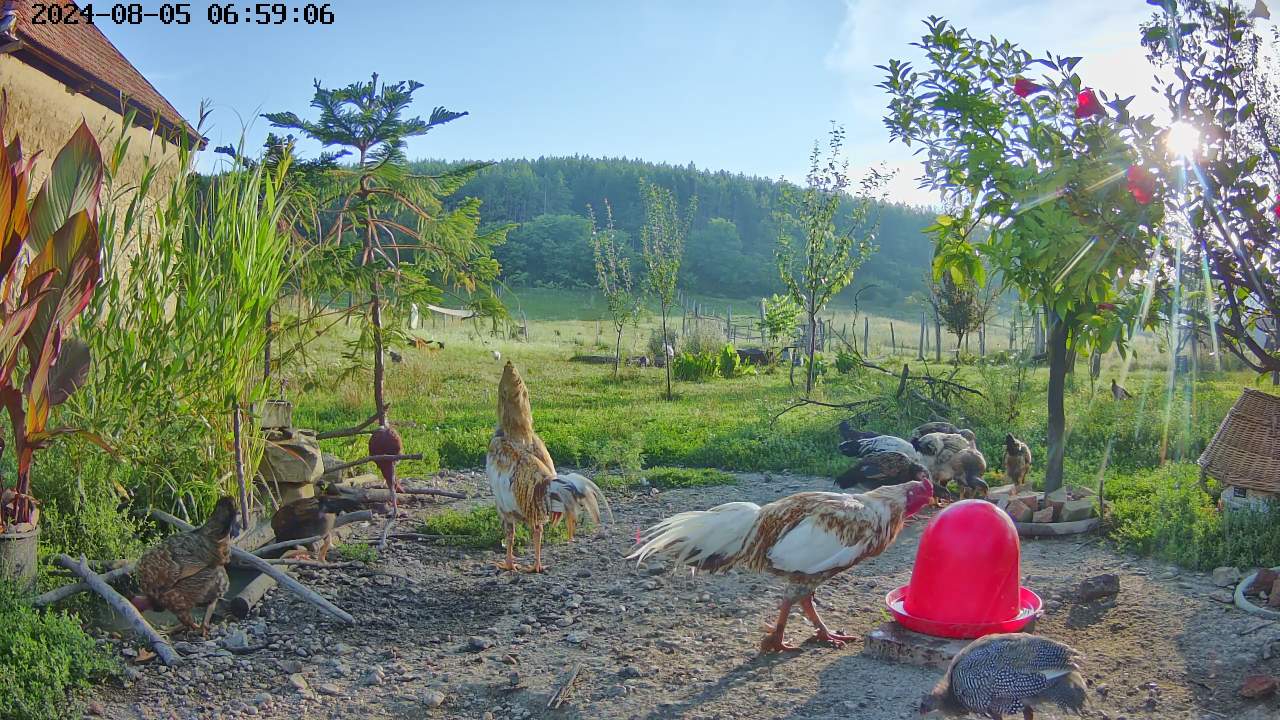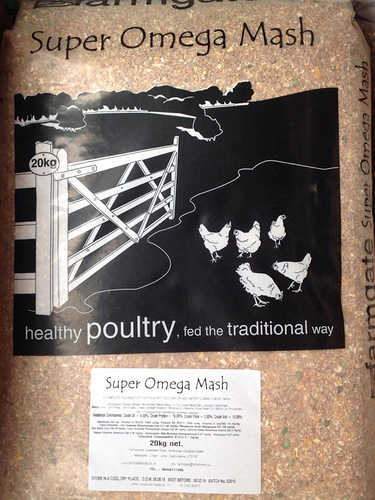I put it in Google Translate and this is what it says:
(Interesting… I’ve never looked at the contents of the chicken feed so closely before!)
Contents
16.00% crude protein, 3.60% crude fat, 4.00% crude fiber, 12.20% crude ash, 3.60% calcium, 0.45% phosphorus, 0.14% sodium, 0.75% lysine, 0.34% methionine
energy: 10.6 MJ ME/kg
Ingredients
Wheat, maize, soybean meal (made from genetically modified soybeans),
calcium carbonate, wheat gluten feed, rapeseed meal,
sunflower meal, vegetable fatty acid (rapeseed, palm).
Fatty acids (rapeseed, palm, sunflower, coconut),
vegetable fat (palm), monocalcium phosphate,
sodium chloride, sodium bicarbonate
Additives per kg
Nutritional additives:
10,000 I.U. vitamin A (3a672a), 3,000 I.U. vitamin
D3 (3a671), 20 mg vitamin E (3a700), 50 mg iron
as iron(II) sulphate monohydrate (3b103), 6 mg
copper as copper(II) sulphate pentahydrate (3b405), 40
mg zinc as zinc sulphate, monohydrate (3b605), 40 mg
Manganese as manganese(II) sulphate, monohydrate (3b503),
1.3 mg iodine as calcium iodate, anhydrous (3b202),
0.20 mg selenium as sodium selenite (3b801)
Zootechnical additives:
700 FYT 6-phytase EC 3.1.3.26 (4a18),
152 U endo-1,3(4)-ß-glucanase EC 3.2.1.6 (4a15),
1,220 U endo-1,4-ß-xylanase EC 3.2.1.8 (4a15)
Technological additives:
Formic acid (1k236), lactic acid (E270), 22.6 mg
Butylhydroxytoluene (BHT) (E321), 74 mg sepiolite
(E562)
Sensory additives:
5 mg lutein-rich extract (2a161),
6 mg canthaxanthin (2a161g)

 not like I notice taste differences, I only feel certain supermarket eggs worse. With the better code, of course, I NEVER buy code 3 eggs, I rather go without eggs and I am an egg maniac but I have standards.)
not like I notice taste differences, I only feel certain supermarket eggs worse. With the better code, of course, I NEVER buy code 3 eggs, I rather go without eggs and I am an egg maniac but I have standards.)
